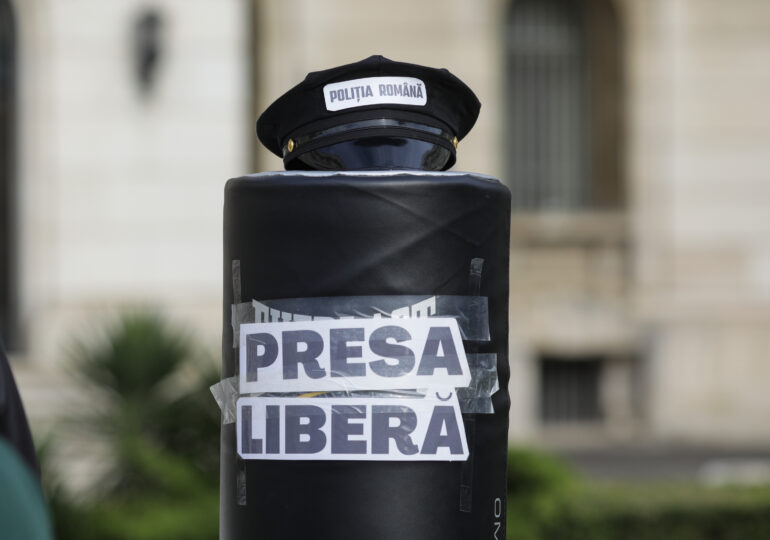The annual report of the European Commission on the rule of law, published on Tuesday, highlights Romania’s progress in judicial reform and the fight against corruption, but raises an alarm about the lack of progress in the areas of press freedom, lobbying regulation, and transparency in media financing.
Although Romania ticks off „significant progress” in implementing the Venice Commission’s recommendations on judicial laws, the report emphasizes that no progress has been made regarding the strengthening of editorial independence and the leadership of public media services – an aspect that places the country in the red zone of unfulfilled recommendations.
Media under political and financial pressure
The Commission warns that Romania's public media services continue to operate without solid guarantees of editorial independence, and political pressure on journalists remains high. Meanwhile, the scope for independent press is limited by the lack of a coherent legislative framework, as well as acute economic vulnerabilities.
A critical point in the report is the indirect funding of private media by political parties and state authorities, which, in the absence of clear regulation, generates a masked form of political advertising. This practice – opaque and unfair – directly affects media pluralism and creates a politically controllable market, where journalistic content can be potentially distorted.
"Funding of private mass media by political parties and state authorities has led to an increase in opaque political advertising," the European Commission document states.
Furthermore, information about media ownership – especially outside the audiovisual sector – remains insufficient, and self-regulation attempts within the press have not yielded concrete results. Thus, the lack of financial and editorial transparency leaves room for suspicions of political or economic influence on editorial content.
Moreover, Commission experts note that threats and harassment of journalists remain a serious issue, and authorities' response is often inadequate. Political pressure continues to affect editorial freedom in newsrooms, especially in the context of elections and controversial legislative debates.
Ministry of Justice's Reaction: Partial Recognition, Focus on Judicial Reforms
In its official response to the report, the Ministry of Justice highlighted mainly the progress made in the field of justice and the anti-corruption framework.
The institution avoided detailed comments on media sector criticisms but mentioned the drafting of a bill to transpose the European anti-SLAPP Directive, aimed at protecting journalists from abusive lawsuits intended to intimidate them.
"The rule of law report – 2025 edition – objectively notes the substantial progress made by Romania in the field of justice and the anti-corruption framework," said Minister of Justice Radu Marinescu, adding that "reforms will continue at a sustained pace, in dialogue with the judiciary system and European partners."
Regarding the media, the Ministry's only reference was to the legislative project for protection against SLAPP lawsuits, currently under public consultation.
Clear Recommendations from Brussels
Among the specific recommendations addressed to Romania, the Commission calls for:
- Strengthening norms and mechanisms to ensure the independent leadership and editorial independence of public media services;
- Adopting a legislative framework to regulate lobbying activities and ensuring the efficiency of asset declaration systems;
- Limiting the use of government emergency ordinances, which undermine the democratic legislative process and the predictability of norms;
- Enhancing transparency in the funding of political parties and their relationship with the media to prevent the distortion of public discourse.
The EU rule of law report serves as a preventive tool to help address rule of law challenges in all member states and drive necessary reforms at the national level. Starting from 2022, the Rule of Law Report includes recommendations for each member state, whose implementation is monitored annually by the European Commission.

